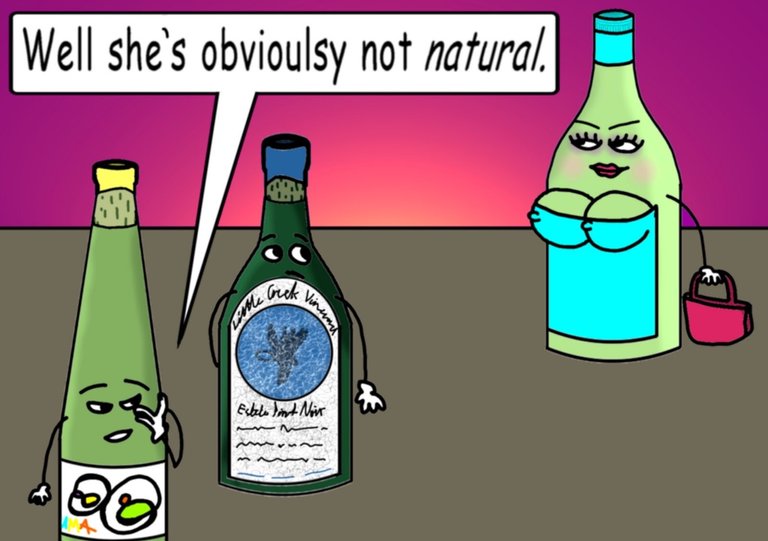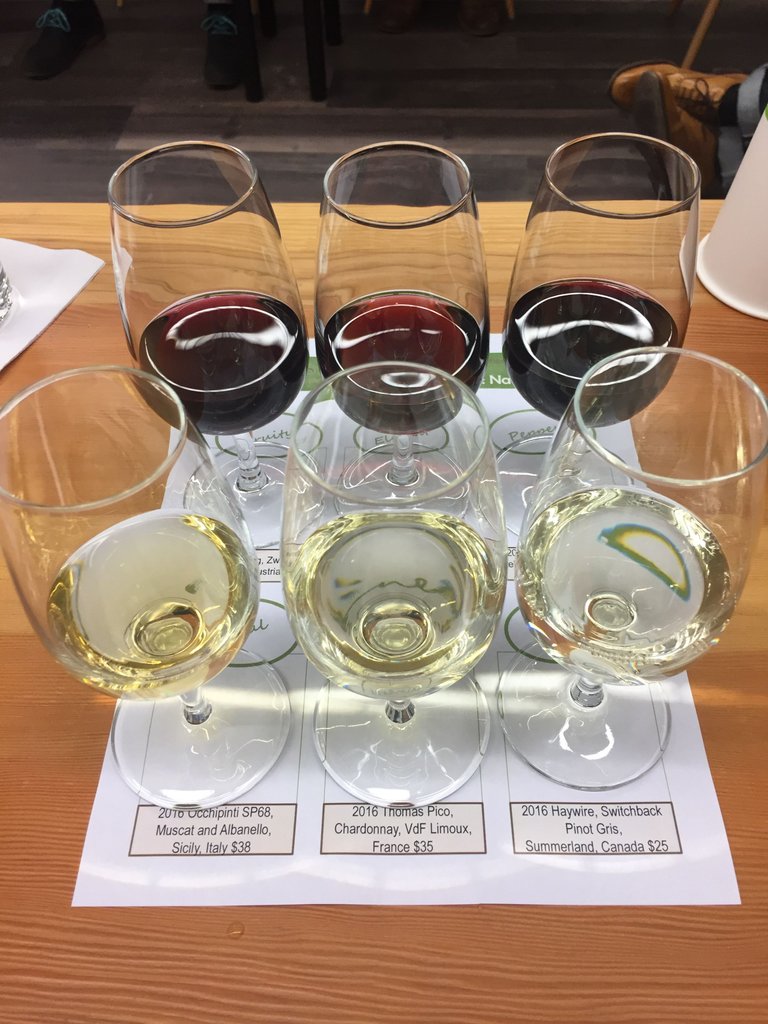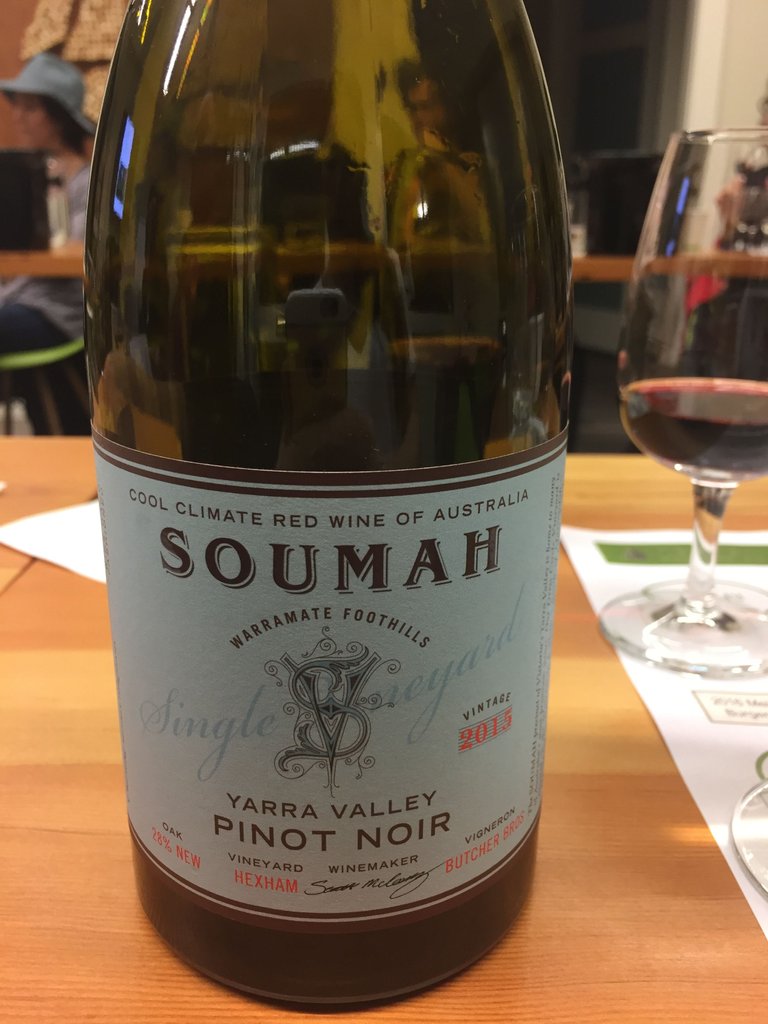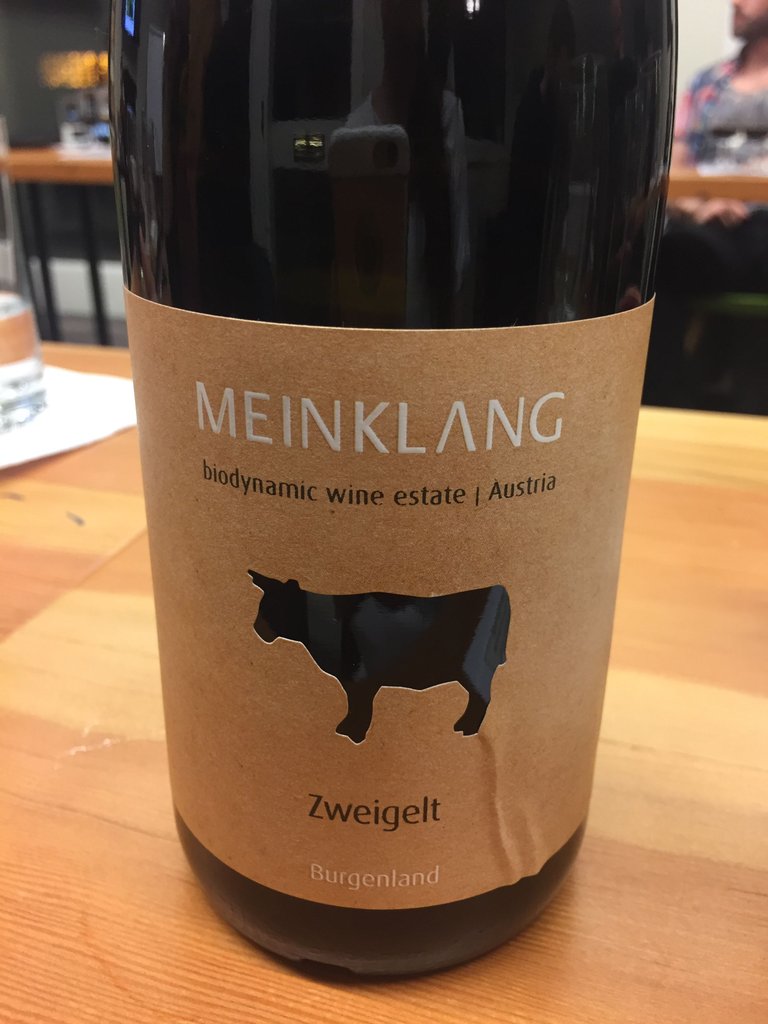Natural vs. Organic vs. Biodynamic = SO MANY QUESTIONS!!!
We're only going to touch on natural wines in this post, but stay tuned for future posts on organic and biodynamic wines!

Over the weekend I attended a seminar about Natural Wines. I knew immediately that I was going to attend this because I get asked all the time about them. Is it just hippy wine? It must taste like crap right? Should I only be drinking it when the stars favour Scorpio? And I never really had the answers! I'll admit that when I first heard about natural wines, there was a lot of negative (and inaccurate!) press about kooks making wine in there garage, but I've since learned that is not the case.
So what is the definition of 'Natural Wine'? Natural wine is farmed organically or biodynamically and made without adding or removing anything in the cellar. Ultimately, intervention is kept to a MINIMUM. Some natural winemakers will add a small amount of sulphur at bottling in order to assist with stability and minimize the chance of the wine starting to referment in bottle, but other than that it is kept pretty hands off. And while there are no legal definitions that exist, here are a few other general guidelines for natural winemaking:
- Grapes are from dry-farmed, low-yielding vineyards
- Vineyards are organically or biodynamically grown, ie: no pesticides or chemicals
- Grapes are hand-picked (no machines)
- Wine is fermented usually natural, native yeasts. No foreign yeasts or bacteria is added.
- No added flavours, ie: oak influence
- No fining, however gross filtration by gravity (therefore not forced) is common
- Minimal or no added sulphites
- No temperature controlled fermentations
- No added sugar or acid
You have to keep in mind that because natural winemaking is controversial and isn't legally regulated, that these are just GUIDELINES. There are small official-ish commitees that helps to clarify the rules in certain countries, so that's where most of these guidelines are coming from.
Soumah makes some very low-intervention wines, but you'll notice on the label that they use oak. See? There's a spectrum when it comes to how 'natural' a wine may be!
If you're needing a quick and easy answer to what natural wine is, go with 'It's a wine where nothing is added and nothing is removed. It's a low-intervention as you can get, aka 'natural'.'
And remember that natural wine, organic wine, and biodynamic wine are all different. Yes they have some similarities, but they do not have ALL the same rules. I'll make sure to do a future post on organic and biodynamic :)
Meinklang is a winery that practices biodynamics as well as natural winemaking
Jen🍷




The best thing I like about natural wine is the no added sulfates. I think I do get some headaches when wine has sulfates. I know that it is naturally occurring, but is there anyway to know how much sulfate is in the wine? I look forward to learning about the biodynamic wine, I don’t know anything about that. Loved this post!
Thanks for the info. Is there a fairly easy way to spot or identify a wine that is "natural" versus the others (especially in a common grocery store setting)? I love wine but am always on the lookout for organic and natural ones because I believe they are much better and healthier for you .
@rubygoat I wish there was an easy way to spot the difference! Because it's unregulated, there are no labeling rules. I would just look for bottles that specify 'natural' or 'biodynamic'. Good luck! Let me know what you find!
Ok, this is amazing. I hadn't ever considered this, but it's obvious, the fruit will keep fermenting while it's inside unless there's something to stop it. I would've thought it was the lack of oxygen, but using sulphur sounds like a cool strategy. I wonder whether this was discovered before modern chemistry or whether this could be done in the Middle Ages.
So they still smash the grapes with the feet :D?
Actually, many Port vintages are still done that way
I know a guy who just puts it all in a smasher and he says it doesn't add or remove anything except for the fact that feet have yeast which may contribute to fermentation.
Will it make me more or less likely to start a fight?
Probably just the same as any same-grade alcoholic beverage. :D
I always loved natural red wine! Wherever I travelled I bought the local brands, when possible straight from the producer.
I’ve been a fan of natural wines for a while. My favourite is Soul Growers who make a fantastic Shiraz and equally good Cab Sav.
They’re well worth checking out if you ever get the chance.
Great article! I worked on an organic farm which produced and bottled its own wine every year.
In order for the wine to not go bad during fermentation the grapes have to have on average 25% sugar content measured using a BRIX refractometer.
Once the grapes get the OK grapes were harvested by hand and thrown into a hand driven crushing machine where the pulp and juice would land in a massive vat.
Fermentation was controlled using temperature only.
drop a wide piece of hose with hot water running through it in a closed circuit into the vat to increase fermentation
Drop a massive sealed bucket of ice into vat to cool down fermentation.
The vat had to be checked on multiple times a day and hand manipulated to allow oxygen etc to permeate.
I've personally done over 100 tests😁 and I've discovered that drinking wine without sulphur definitely gives me almost no hangover. Whenever I drink a bottle of wine that isn't natural I absolutely feel much more of a hangover and have suffered severe headaches the next day.
So I'm convinced that natural wines are superior to 'artificial' wines which makes sense because 'sulphites' (or sulphur) is actually one of the most poisonous things you can put into a human body? 🍇Thanks for interesting post!
:OOOOOO This is an amazing discovery. I have to make sure to get drunk with natural and non-natural wine in the future to test and feel grateful to you. Tyvm!
🍷Cheers only a pleasure @cryptosharon🌼
Sulfur dioxide is used in winemaking and acts as a preservative although I think there is a small amount created naturally during fermentation also. Just avoid any wine that says 'contains sulfites' for best results IMHO
I'll take your advice! Thank youuu
That's a great educational post!
Yesterday was National Drink Wine Day and I collated some great infographics and wallcharts, feel free to check it out:
https://steemit.com/food/@doctoryak/world-of-wallcharts-series-6-wine
https://steemit.com/steemit/@jesusj1/power-down-or-will-2018-be-a-whale-up-vote-in-a-post-on-my-blog-or-motivo-direct-to-chile-with-steemit
In this 'pure' form, are the affects for the potential of inebriation the same?
I know that Jesus drank wine; which, is a bone of contention for some. I do believe that it is good for those who are 'emotionally' burdened; almost like an aspirin. However, unlike aspirin, it is of greater risk for becoming 'addictive'.
Interesting post, many thanks!
Peace.
Congratulations @travelingsomm, this post is the seventh most rewarded post (based on pending payouts) in the last 12 hours written by a Superuser account holder (accounts that hold between 1 and 10 Mega Vests). The total number of posts by Superuser account holders during this period was 1506 and the total pending payments to posts in this category was $14484.62. To see the full list of highest paid posts across all accounts categories, click here.
If you do not wish to receive these messages in future, please reply stop to this comment.
Thank you. Great article!
Personnally, i observe more and more interest for AB wine in France (issue of Organic Farming/"Agriculture Biologique").
We have a great store in Rotterdam, the Netherlands, with all natural wines.I love them! There's something really pure about it, I can't really explain it.
I wonder what the overall affect the natural process has on the wine. Would it drastically affect the flavor or alcohol content?